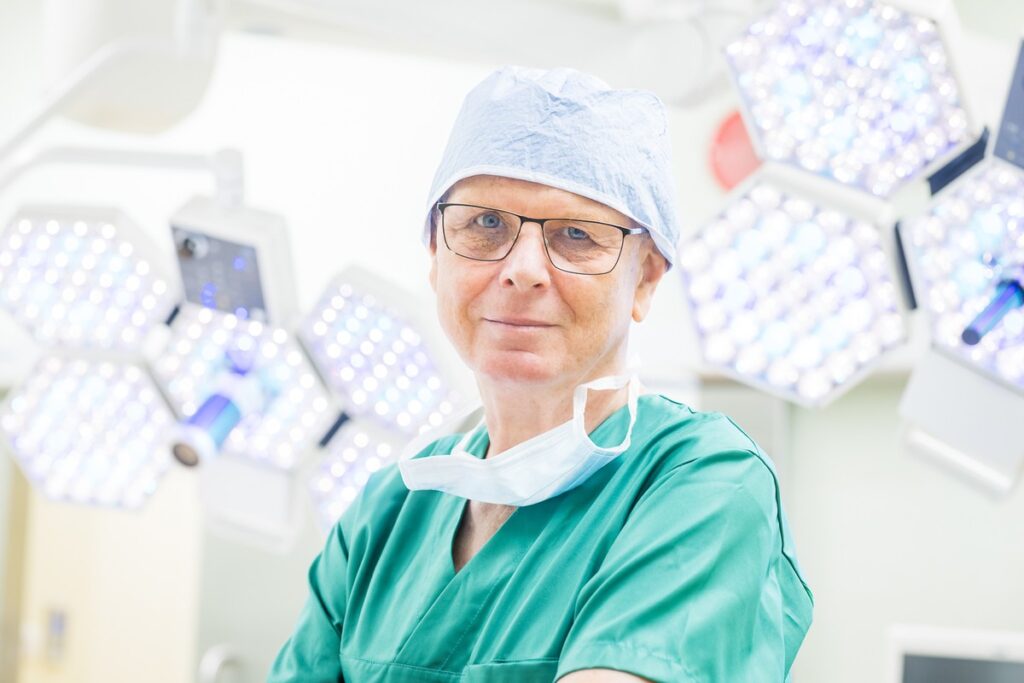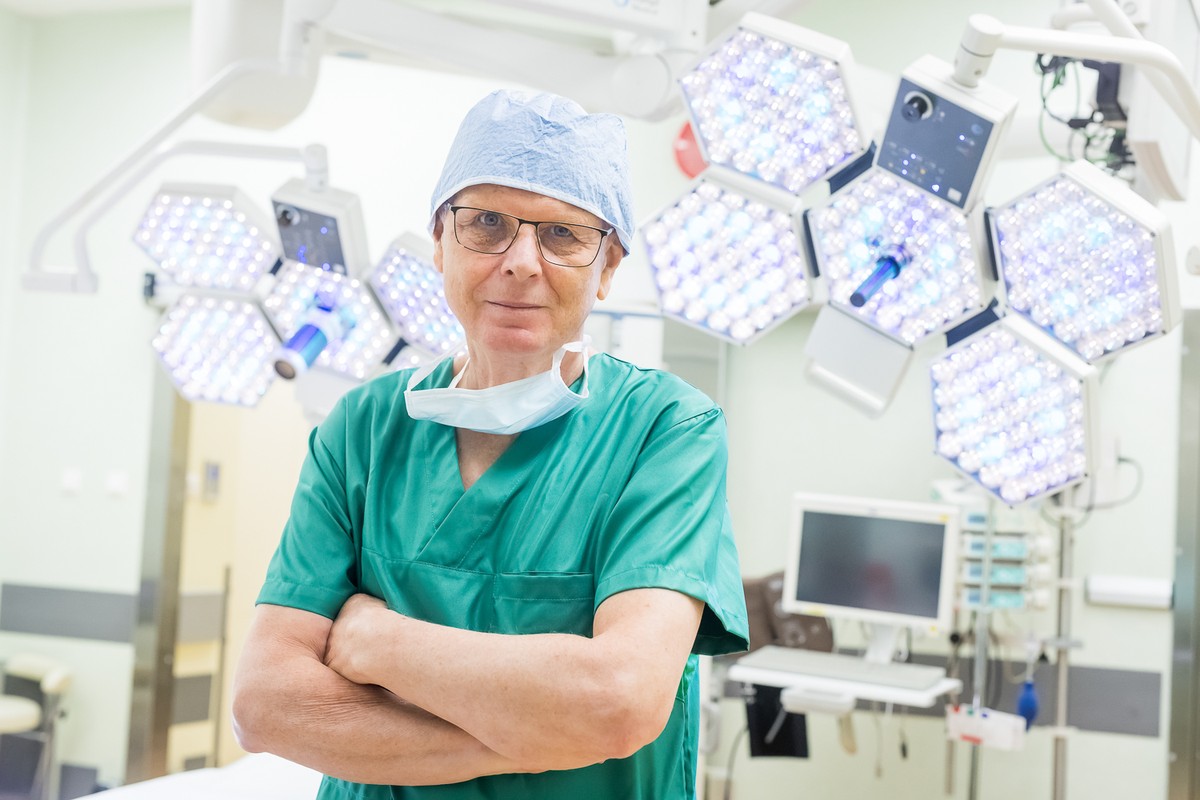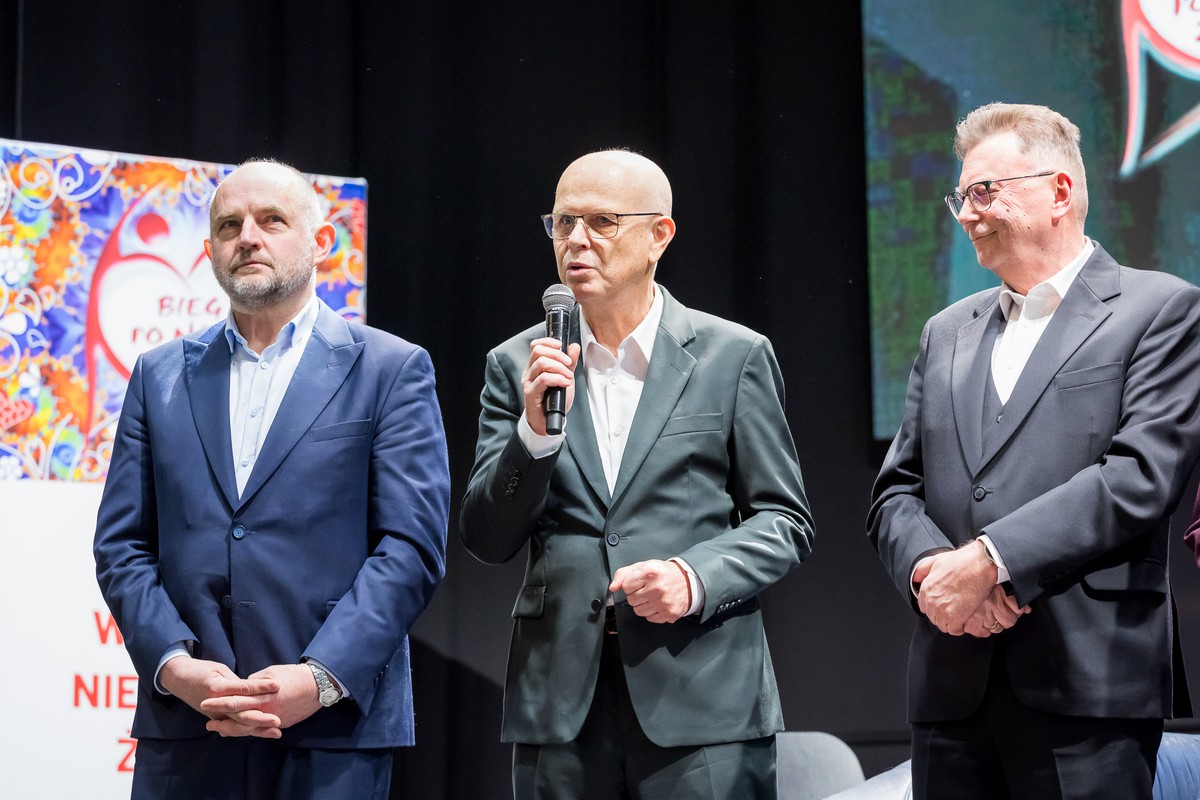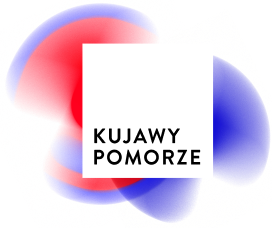
Transplantology Is No Longer a Taboo Topic
Interview with Prof. Zbigniew Włodarczyk, Head of the Department of Transplantology and General Surgery at the Collegium Medicum of Nicolaus Copernicus University
Why is transplant education and the promotion of organ donation and transplantology so important today?
Transplantology is the only modern field of medicine that requires public acceptance. Public opinion research shows that while most Poles accept organ transplantation as a form of treatment, significantly fewer would agree to donate their own organs—or those of their loved ones—for transplantation.
The goal of educational efforts is to convince society that brain death is equivalent to human death, that organs are only retrieved after death has been declared, and that the act of organ donation after death is not only an act of solidarity with another, unknown recipient, but also an act of selfless love.

Fot. Tomasz Czachorowski/eventphoto dla UMWKP
What is a transplant declaration of intent and how does it work?
A declaration of intent is a form of expressing our personal convictions, made during our lifetime, regarding consent to donate our organs after death. Although it is not legally binding, it represents a meaningful statement of our wishes and beliefs for our loved ones: “Mom, Dad, husband, wife – if I die, I would like my organs to save other people’s lives.” That’s why, if we choose to sign such a declaration, it’s so important to inform our closest family members about it.
It should also be clearly stated: signing a declaration of intent does not in any way affect the type, intensity, or quality of medical care you receive in the event of an accident or life-threatening situation.
You are one of the pioneers of Polish transplantology. You helped establish transplant centers in Poznań and Bydgoszcz. The latter has now been operating for 25 years—how would you summarize your achievements over this quarter-century? What has changed in attitudes toward transplants in Poland during that time?
My journey—or rather, this fascinating adventure—with transplantology has lasted for 34 years. It began in the United Kingdom, where I was fortunate to learn from the best transplant surgeons in London, then continued in Poznań in cooperation with nephrologists, and since 2000, in Bydgoszcz. Over 1,400 kidney transplants, thousands of hours in the operating room, some inevitable setbacks, but far more joy and therapeutic success stories. And above all, a small but exceptionally skilled and close-knit team of doctors and nurses, with whom working is truly an honor.
It’s also the awareness that from our kidney transplant program, an active liver and cornea transplant program has branched out—and in the future, we may even be transplanting hearts.

Prof. Zbigniew Włodarczyk (w środku) oraz marszałek Piotr Całbecki i wicemarszałek Zbigniew Ostrowski podczas Forum Młodych „Bo nowe jest nadzieją”, Bydgoszcz, 8 kwietnia 2025, fot. Tomasz Czachorowski/eventphoto dla UMWKP
Transplantology Is No Longer a Taboo Topic
We talk about it in schools and during meetings with medical staff from other hospitals. The subject even appears in some sitcoms. The Catholic Church hierarchy has also expressed a positive stance, recalling the words of John Paul II, who described organ donation after death as the highest expression of Christian love.
April 25, 2025


